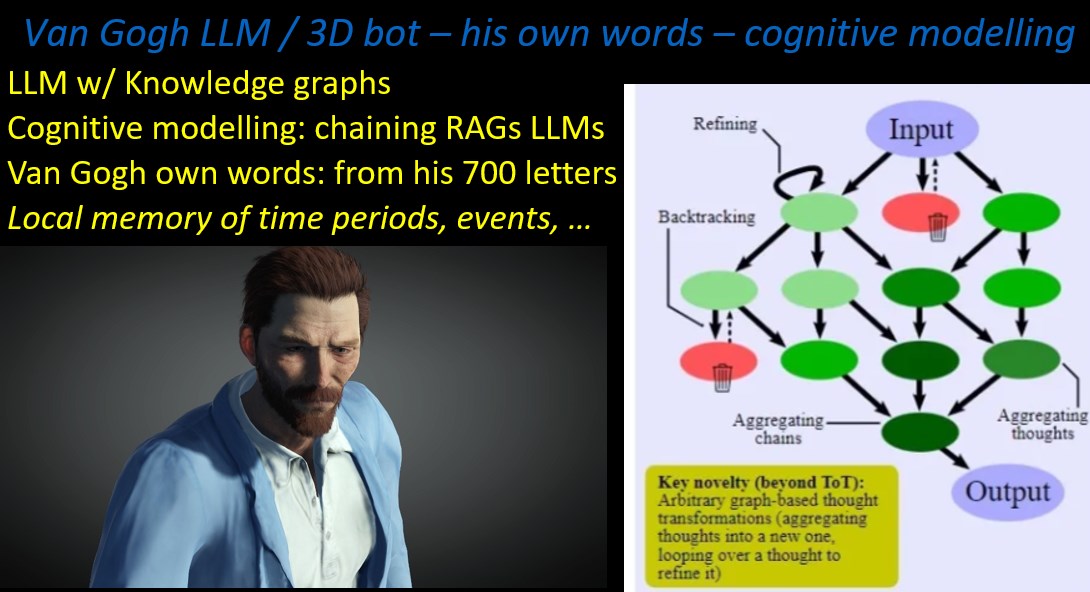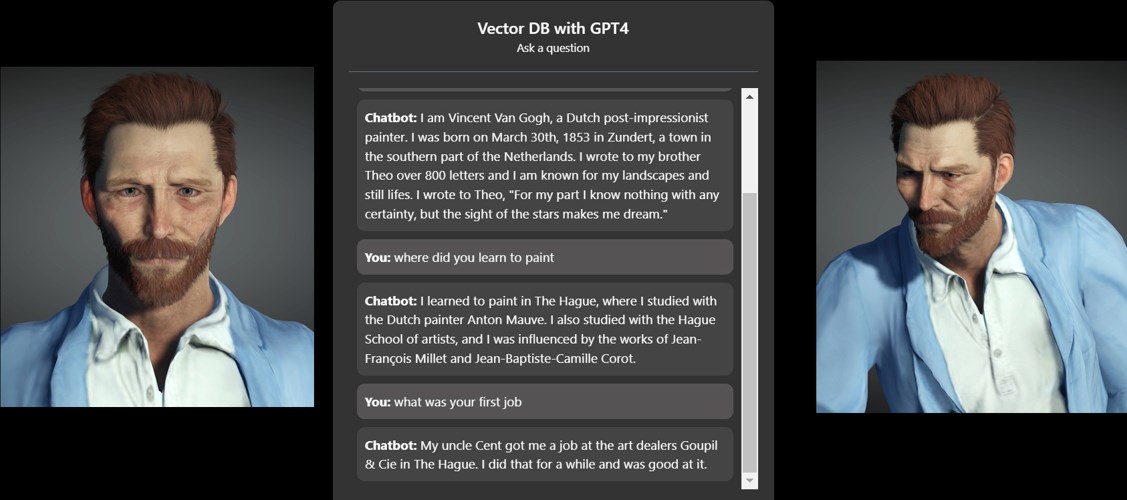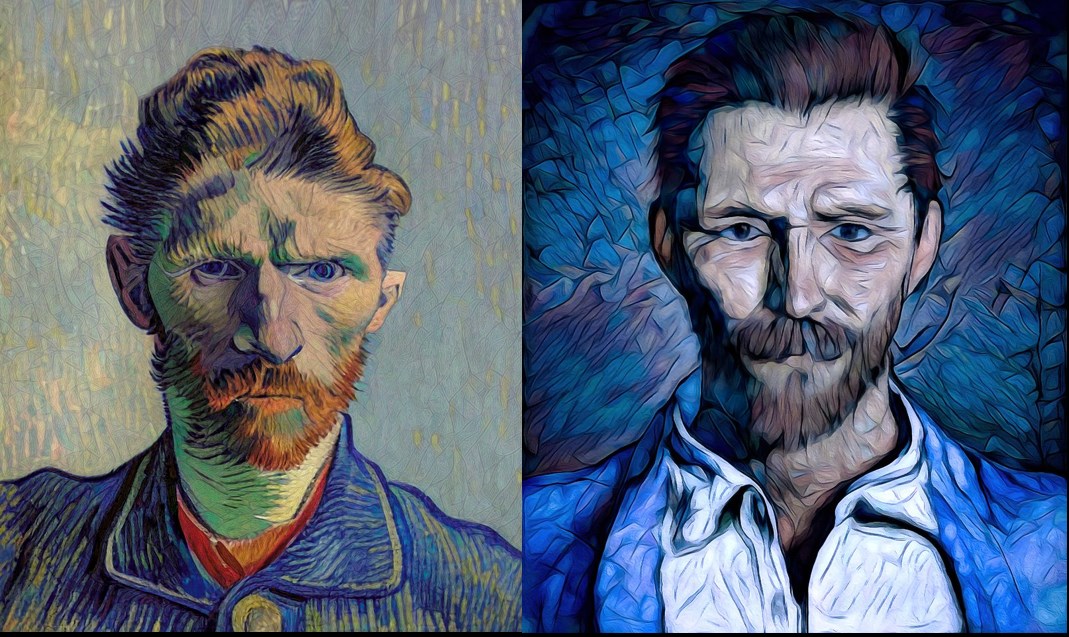AI Modeling Thought & Language
See Related Papers and Related Projects:
## Semantic Meaning & Analysis ## AI-based Exploration of Art and Design ## AI Cognitive Creativity
## Sensing Humans (Bio/Brain/Face/Movement/VR)
Researchers: Steve DiPaola, Rafael Arias Gonzalez, Nilay Yalcin, Maryam Ahmadzadeh
The Research:
Our AI work in cognitive modeling of thought, expression and language using advanced AI systems like AI Knowledge Graphs of thought and chained RAG based LLMs. We have on going research on VR simulators where females can pratice negotiating for a raise with their boss, as well as being able to ask any question to a climate change expert ( see video below). Also, allowing the public to talk faithfully (as much as possible) to inspiring historical figures like our Picasso and Van Gogh. With Van Gogh, we used our specific AI pre-processing of times of his life, historical events/people and the 700 letters he wrote in his own words to his brother Theo into a knowledge system that then goes through additional 3D facial expression, body gesture, talking, voice AI systems.
See figures and videos of our work below:
 Figure 1: Cognitive modeling of our virtual Van Gogh.
Figure 1: Cognitive modeling of our virtual Van Gogh.
 Figure 2: Sample of user conversation with our Van Gogh model.
Figure 2: Sample of user conversation with our Van Gogh model.
 Figure 3: Our VR characters even dynamically morph into painted forms based on their emotional state.
Figure 3: Our VR characters even dynamically morph into painted forms based on their emotional state.
Video 1: Our interactive realtime advanced AI /VR character talking with DiPaola about any aspect of climate change via its knowlevge base.
(Multi document knowledge base, RAG system, expression, emotion, gesture, lipsyc, experssive voice).
Video 2: Talking with our Virtual AI Picasso live (created with ivizlab research and Virtro)
—— PAPERS: AI Modeling Thought & Language ——
by
Gonzalez RA; DiPaola S –
ACM CHI Conference on Human Factors in Computing Systems (CHI) (2024)
by
Shakeri H; Neustaedter C; DiPaola S –
ACM Conference on Computer Supported Cooperative Work and Social Computing (CSCW) (2021)
by
Utz V; DiPaola S –
Biologically Inspired Cognitive Architectures (BICA) (2019)
by
DiPaola S; Yalcin ON –
Affective Computing and Intelligent Interaction Workshops and Demos (ACIIW) (2019)
by
Yalcin ON; DiPaola S –
Biologically Inspired Cognitive Architectures (BICA) (2019)
by
Yalcin ON; DiPaola S –
Annual Conference of the Cognitive Science Society (2019)
by
Turner JO; DiPaola S –
International Conference on Artificial General Intelligence (AGI) (2018)
by
Turner J; Bernardet U; Nixon M; DiPaola S –
Full Book (2016)
by
Bernardet U; DiPaola S –
Biologically Inspired Cognitive Architectures (BICA) (2014)